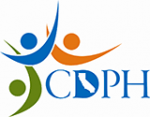Overview
*Applications will be reviewed on a rolling-basis.
CDC Office and Location: A fellowship opportunity is available with the Agency for Toxic Substances and Disease Registry (ATSDR) within the Office of Innovation and Analytics (OIA), at the Centers for Disease Control and Prevention (CDC) in Atlanta, Georgia. This opportunity is part-time or full-time and is eligible for 100% remote participation within 50 miles from Atlanta, Georgia.
The Centers for Disease Control and Prevention (CDC) is one of the major operation components of the Department of Health and Human Services. CDC works to protect America from health, safety, and security threats, both foreign and in the U.S. Whether diseases start at home or abroad, are chronic or acute, curable or preventable, human error or deliberate attack, CDC fights disease and supports communities and citizens to do the same.
The mission of the Agency for Toxic Substances and Disease Registry (ATSDR) is to protect communities from harmful health effects related to exposure to natural and man-made hazardous substances. Within ATSDR is the Office of Innovation and Analytics aim to enhance public health decision-making through advanced analytics, informatics, and new technologies.
The Science, Service, and Strategy (SSS) team at the CDC focuses on strengthening public health impact through strategic scientific leadership, effective service delivery, and evidence-based policy development. The mission of SSS is to advance the CDC’s capacity to respond to health threats by promoting high-quality science, fostering innovation, and aligning resources to public health priorities.
Research Project: Maternal and child health are closely linked and influenced by multiple factors. Each year, millions of pregnant women, new mothers, and children suffer from severe illness or death globally, largely due to preventable or treatable causes. In the U.S., diseases affecting maternal and child health remain prevalent, especially in populations facing disproportionate risks. An overlooked period that may impact long-term health is during pregnancy and in utero development. There is limited research on how exposure to environmental chemicals during pregnancy, childbirth, and postpartum may increase health risks for mothers and babies. We propose to examine if pregnancy, childbirth, and the postpartum period chemical exposures in communities result in higher pregnancy and postpartum disease rates among mothers-babies.
We’ll do this by 1) Examining the available data on the effects of chemical exposure during and after pregnancy on health risk factors and 2) Identifying current new alternative approaches used in this research area and assessing their applicability. These findings could be important for identifying mothers and children who are more likely to develop disease risk during pregnancy and later in life. They may also provide insight into the role of environmental chemicals as risk factors during pregnancy.
Learning Objectives: The fellow will learn to use, analyze, and interpret data from available literature, machine learning modeling, and predictive toxicology tools. The fellow’s training will also include literature review, public health, risk assessment, toxicology, chemistry, and health equity concepts, as well as train in data processing software, literature search databases, report and presentation writing, and public speaking.
Mentor(s): The mentor for this opportunity is Patricia Ruiz (doz8@cdc.gov). If you have questions about the nature of the research please contact the mentor(s).
Anticipated Appointment Start Date: March 10, 2025. Start date is flexible and will depend on a variety of factors.
Appointment Length: The appointment will initially be for six months, but may be renewed upon recommendation of CDC and is contingent on the availability of funds.
Level of Participation: The appointment is full time or part time.
Participant Stipend: Stipend rates may vary based on numerous factors, including opportunity, location, education, and experience. If you are interviewed, you can inquire about the exact stipend rate at that time and if selected, your appointment offer will include the monthly stipend rate.
Citizenship Requirements: This opportunity is available to U.S. citizens, Lawful Permanent Residents (LPR), and foreign nationals. Non-U.S. citizen applicants should refer to the Guidelines for Non-U.S. Citizens Details page of the program website for information about the valid immigration statuses that are acceptable for program participation.
ORISE Information: This program, administered by ORAU through its contract with the U.S. Department of Energy (DOE) to manage the Oak Ridge Institute for Science and Education (ORISE), was established through an interagency agreement between DOE and CDC. Participants do not become employees of CDC, DOE or the program administrator, and there are no employment-related benefits. Proof of health insurance is required for participation in this program. Health insurance can be obtained through ORISE.
The successful applicant(s) will be required to comply with Environmental, Safety and Health (ES&H) requirements of the hosting facility, including but not limited to, COVID-19 requirements (e.g. facial covering, physical distancing, testing, vaccination).
Questions: Please visit our Program Website. After reading, if you have additional questions about the application process please email ORISE.CDC.ATSDR@orau.org and include the reference code for this opportunity.
Qualifications
The qualified candidate should be currently pursuing or have received a bachelor’s or master’s degree in the one of the relevant fields. Degree must have been received within the past five years, or be currently pursuing.
Preferred skills:
Data science
Problem-solving skills
Modeling
Interest in biology and chemistry
Self-motivated



